#kombucha healthy gut
Explore tagged Tumblr posts
Text
7 Reasons Why Organic Kombucha Powder Tops Gut Health Charts
A remarkable contender has emerged in health and wellness, captivating the attention of health enthusiasts and professionals alike. Kombucha Tea Powder has taken the gut health charts by storm with its exceptional benefits. Let's explore why this natural elixir has risen to the forefront, overshadowing its competitors and positioning itself as a quintessential addition to a health-conscious lifestyle.

Probiotic Powerhouse: Cultivating a Flourishing Microbiome
At the heart of its popularity lies the unparalleled probiotic content of Kombucha Powder. This superfood promotes a balanced gut microbiome packed with diverse live bacteria and yeast strains. The probiotics in kombucha assist in bolstering the population of beneficial bacteria, aid digestion, boost immunity, and influence mental well-being.
Rich in Enzymes: Enhancing Digestive Vitality
Digestive health is a cornerstone of overall well-being, and Kombucha Powder Packets delivers on this front magnificently. Bursting with enzymes such as amylase, lipase, and protease, it supports the breakdown of complex nutrients, easing the burden on the digestive system. It results in better nutrient absorption and reduced discomfort after meals.
Detoxification Dynamo: Purifying from the Inside Out
In an era where detoxification is paramount, Organic Kombucha is an exceptional ally. Kombucha's organic acids, such as acetic and gluconic acids, bind to toxins and facilitate their elimination. This natural detox process rejuvenates cells, lending a radiant and refreshed complexion.
Immune System Booster: Shielding the Body
A robust immune system is the body's primary defense mechanism, and the consumption of Organic Kombucha Powder can contribute significantly to its fortification. Rich in antioxidants, particularly vitamins C and E, kombucha powder combats oxidative stress, reduces inflammation, and safeguards the immune system against various illnesses.
Mood Enhancement: Nurturing the Mind-Gut Connection
The intricate connection between the gut and the mind has garnered much attention recently. Kombucha contributes to this connection through its impact on the gut-brain axis. The probiotics and bioactive compounds in kombucha can positively influence mood and cognitive function, offering a natural approach to emotional well-being.
Weight Management Support: Achieving Balance
The journey towards achieving and maintaining a healthy weight is often multifaceted. Kombucha with Low Sugar plays a pivotal role in promoting metabolic harmony. The acetic acid in kombucha has been linked to weight management by aiding in appetite regulation, optimizing energy utilization, and supporting healthy digestion, thereby contributing to sustainable weight goals.
Versatility Redefined: Incorporating Kombucha Powder
Beyond its myriad health benefits, the versatility of Organic Kombucha Powder in culinary creations is unmatched. The powder integrates into various recipes, from invigorating smoothies to mouthwatering baked goods. This adaptability ensures that reaping the rewards of kombucha doesn't have to be monotonous.
Final Words Beloit Kombucha is promoting the Best Low Sugar Kombucha to the zenith of gut health charts, which is far from coincidental. Its diverse range of benefits, including gut health optimization, immune system support, detoxification, and mood enhancement, make it a standout contender in health and wellness. As the awareness of the intricate connection between gut health and overall well-being grows, the prominence of kombucha powder as a nutritional powerhouse is bound to escalate. Buy your packet today!
#kombucha healthy gut#healthy gut drink kombucha#kombucha benefits gut health#probiotic black tea benefits#the best kombucha for gut health#blueberry mint kombucha#kombuch healthy drinks#kombucha drinks
1 note
·
View note
Text
Me and my partner just tried kombucha for the first time together
Got out some white wine glasses and everything
I do not drink alcohol so i felt quite fancy drinking out of a wine glass 😆☺️
We wanted to try some because we heard about the benefits, probiotics for gut health, liver health, heart health and possibly also the killing of bad bacteria.
But also because we thought the process would be quite fun, a new healthy hobby.
And I thought it might be a nice replacement for soft drinks.
I thought I wasn't going to like it, but it's not bad!
We are going to try and make our own scoby for it.
I'll update when we get there ☺️
If anyone has experience with this process and has tips or ideas please let me know!🩷
#personal#kombucha#gut#guthealth#healthy gut#probiotics#liver health#heart health#fermentation#fermenting#tea#holistic health#holistic#crunchy#crunchy mom#crunchymom#homemaker#homemaking#farmcore#egalitarian#cottagecore#traditional#femininity#feminine#cute#my partner
10 notes
·
View notes
Text
Kombucha Market is experiencing Rapid Growth driven by Increasing Health Awareness
Kombucha is a fermented, lightly effervescent and slightly sweetened black or green tea drink commonly consumed for its supposed health benefits. It is made by combining tea, sugar, bacteria and yeast and allowing the mixture to ferment. Kombucha contains various bacteria and yeasts that are said to be probiotic in nature and aid in digestion. The rising health awareness among people regarding the consumption of probiotic foods and beverages has driven the growth of the kombucha market in recent years.
The Global Kombucha Market is estimated to be valued at US$7.9 billion in 2024 and is expected to exhibit a CAGR of 22% over the forecast period 2024-2029. Key Takeaways Key players operating in the Kombucha Market are GT's Living Foods, KeVita, Brew Dr. Kombucha, Humm Kombucha, and Live Soda Kombucha. The Kombucha Market Demand is witnessing robust growth owing to the rising health consciousness among people and increasing awareness about the various health benefits of probiotic drinks. Kombucha aids digestion and gut health due to the presence of various probiotic bacteria and yeasts. North America currently dominates the global kombucha market. However, the Asia Pacific region is expected to witness the fastest growth during the forecast period owing to growing disposable incomes, expanding retail distribution, and increasing popularity of Western alternative beverages in the region. Market Key Trends One key trend gaining popularity in the kombucha market is the launch of various new flavors. To cater to the diverse taste preferences of people, kombucha manufacturers are introducing new flavor innovations. For example, tropical, citrus and herbal flavor variants are being offered. Functional extensions with additional ingredients like ginger, turmeric or guarana extracts are also increasingly common. Such product innovation and line extensions allow manufacturers to expand their consumer base.
Porter's Analysis Threat of new entrants: Kombucha market has moderate barrier for new entrants as it requires high investment and expertise to enter. However, new startups can leverage contract manufacturing. Bargaining power of buyers: Buyers has high bargaining power as the kombucha market has numerous established as well as new players offering variety of products. Bargaining power of suppliers: Suppliers of raw materials like tea used for kombucha fermentation have moderate bargaining power due to limited availability of specialized tea. Threat of new substitutes: Other probiotic drinks and yogurt are potential substitutes but kombucha being promoted as healthier option is witnessing more demand. Competitive rivalry: Intense competition exists among kombucha manufacturers to expand market share and variety of flavors. Geographical Regions North America currently dominates the global kombucha market, holding around 49.5% share in 2017, owing to the increasing health consciousness among consumers. Asia Pacific is expected to witness the fastest growth during the forecast period. Rising middle class population coupled with growing awareness about health benefits of fermented drinks in countries such as China and India is propelling the kombucha market growth in this region.
Get more insights on Kombucha Market
For Deeper Insights, Find the Report in the Language that You want
French
German
Italian
Russian
Japanese
Chinese
Korean
Portuguese
Priya Pandey is a dynamic and passionate editor with over three years of expertise in content editing and proofreading. Holding a bachelor's degree in biotechnology, Priya has a knack for making the content engaging. Her diverse portfolio includes editing documents across different industries, including food and beverages, information and technology, healthcare, chemical and materials, etc. Priya's meticulous attention to detail and commitment to excellence make her an invaluable asset in the world of content creation and refinement.
(LinkedIn- https://www.linkedin.com/in/priya-pandey-8417a8173/)

#Coherent Market Insights#Kombucha Market#Kombucha#Fermented Tea#Probiotics#Gut Health#Healthy Drink#Natural Beverage#Fermentation#Kombucha Benefits#Kombucha Brewing#Organic Kombucha
0 notes
Text
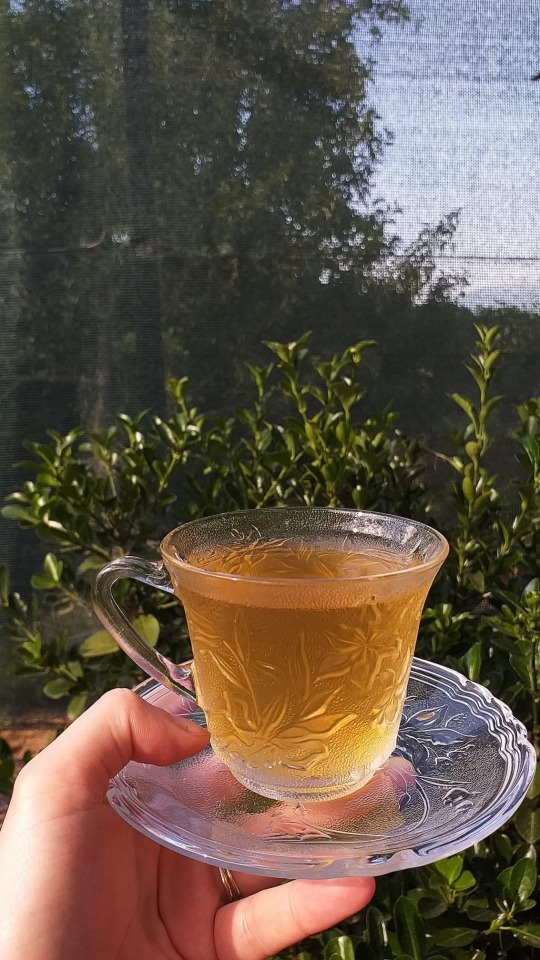
Nurturing Your Body: The Transformative Power of Kombucha
In a world where maintaining optimal health is a constant pursuit, finding natural remedies that support our well-being is invaluable. One such elixir that has gained significant attention is kombucha. This fermented tea has become renowned for its potential benefits on gut health, liver cysts, and overall detoxification. Whether you choose to make it at home or purchase it from a store, incorporating kombucha into your daily routine can be a personal journey towards nurturing your body.
Gut Health: A Foundation for Wellness
The health of our gut plays a crucial role in our overall well-being. Kombucha, with its probiotics and enzymes, can help restore the balance of beneficial bacteria in our digestive system. This, in turn, aids in digestion, reduces bloating, and strengthens the immune system. Regular consumption of kombucha can provide relief for those suffering from digestive issues, such as Irritable Bowel Syndrome (IBS), and promote a healthy gut environment.
Supporting Liver Health with Kombucha
The liver is responsible for detoxifying our bodies and eliminating harmful substances. Liver cysts can pose challenges to this vital organ, but kombucha may offer support. The antioxidants and detoxifying properties present in kombucha can help reduce oxidative stress and aid in the elimination of toxins from the liver. While further research is needed to fully understand the impact of kombucha on liver cysts, incorporating this fermented tea into a balanced and healthy lifestyle may provide some support for liver health.
General Detoxification: A Refreshing Cleanse
In our modern world, we are constantly exposed to toxins and pollutants that can accumulate in our bodies and impact our health. Kombucha acts as a natural detoxifier, assisting the body in eliminating harmful substances. Regular consumption of kombucha can help flush out toxins, support liver function, and promote a healthy, glowing complexion. It offers a refreshing and revitalizing cleanse for our bodies, leaving us feeling rejuvenated and energized.
Making Kombucha at Home or Buying from the Store
If you're interested in embarking on a personal journey of brewing your own kombucha, it can be a rewarding and fulfilling experience. To make kombucha at home, you will need a SCOBY (Symbiotic Culture of Bacteria and Yeast), tea, sugar, and a fermentation vessel. There are numerous recipes and guides available online to help you get started. However, if you prefer convenience, you can easily find a variety of kombucha brands in stores. Look for options that use high-quality ingredients and have minimal added sugars.
Embracing the power of kombucha can be a transformative journey towards nurturing your body. Its potential benefits on gut health, liver cysts, and general detoxification make it a valuable addition to your daily routine. Whether you choose to make it at home or purchase it from a store, the probiotics, enzymes, and detoxifying properties of kombucha can support your overall well-being. So, raise a glass of this fermented tea and embark on your personal journey towards a healthier, more vibrant you.
0 notes
Text
And today’s random gig Titus does to get money sometimes is actually one he does just for himself as well! He makes kombucha and ferments it while on the road, then once he has enough he goes to sell it at music festivals out the back of his van. Whatever he doesn’t sell, he just drinks.
#(( I guess for anyone who doesn’t know what kombucha is it’s just fermented tea ))#(( with living bacteria you drink to keep your gut healthy ))#(( I love it but it does taste alive ))#( headcanons. )#(( I’m drinking one right now that’s lemon and cayenne flavor. like the pepper??? it’s weird ))
1 note
·
View note
Text
Sharing some helpful facts

View On WordPress
#Baking#Breakfast#Chicken Dinner#desserts#Dinner ideas#dog food#Dog food recipe#easy#easy dinner#GF#gluten free#gluten free dinners#gluten free snack#gluten free with heather Lee#gut health#health benefits#healthy gut#homemade dog food#kombucha#limited edition#lunch#meatless#probiotics#protein#tasty treats#tea
1 note
·
View note
Text
#twisted kombucha#kombucha#kombucha good for gut health#kombucha healthy#health benefits of kombucha drinks#kombucha drink health benefits#kombucha safe to drink#kombucha drink benefits#fermented drink#fermentation drink kombucha#kombucha fermented drink#Nutritional drink#kombucha nutritional drink#nutrition kombucha#kombucha nutritional benefits#kombucha wellness drinks#wellness drink kombucha#easy detoxification drink#kombucha detox benefits
0 notes
Text
Gut Friendly Grocery List 🥦🥑🧀
🧀 Probiotic and Fermented Foods:
Yogurt (look for live and active cultures)
Kefir
Sauerkraut
Kimchi
Pickles (fermented)
Tempeh
Miso
Fermented cheeses (e.g., cheddar, gouda, Swiss)
Kombucha
🫘 Fiber-Rich Foods:
Whole grain bread, cereal or pasta
Oats
Brown rice
Quinoa
Lentils
Chickpeas
Black beans
🍳 Protein:
Lean meats (chicken, turkey, lean cuts of beef or pork)
Fish (salmon, mackerel, sardines)
Eggs (rich in amino acids)
Tofu and tempeh (fermented soy products)
Cottage cheese
🍎 Fruits:
Berries (blueberries, strawberries, raspberries)
Bananas
Apples
Oranges
Lemons
Watermelon
🥦 Vegetables:
Spinach
Broccoli
Cauliflower
Brussels sprouts
Asparagus
Onions
Garlic
Artichokes
Sweet Potato
Jicama
Chicory root
Dandelion greens
🥜 Nuts and Seeds:
Almonds
Walnuts
Flaxseeds
Chia seeds
Pumkin seeds
🥑 Healthy Fats:
Avocado
Olive oil
Grass fed butter
🍠 Herbs and Spices:
Turmeric
Ginger
Garlic
🧉 Beverages:
Green tea
Herbal teas
Aloe vera juice
Coconut water
🍫 Other:
Dark chocolate (in moderation)
Apple cider vinegar
Bone Broth
Raw honey
sea salt
Collagen
Seaweed
#gut health#healthy diet#healthy living#health and wellness#health#wellness#healthy lifestyle#health is wealth#groceries#nutrition
3K notes
·
View notes
Text


How to become that girl in 2025
happy new year! to kick off 2025, i want to share some ways that y'all can permanently glow up and become the best version of yourself!
health & fitness:
- find a workout that you actually enjoy and stick to it! it doesn't have to be an hour, but at least 10 minutes is good to start with!
- if you need help or inspiration for workouts, i personally love content from the learmann twins, taliyah joelle, savannah pesante, gisselle giron, taylor groulx, luisa giulietta, and monet zamora
- on that note, have a good stretching routine for before and after your exercises to stay flexible and to keep your muscles healthy and to help prevent injuries
- get enough sleep at night! it may seem like something that you hear all of the time, but getting enough sleep really sets the tone for your day. try to get between 6-8 hours at night, and if you have trouble with this, having a set bedtime and a good wind down routine may help!
- walk for at least an hour a day, especially if you have a remote job or attend school online! put on a good playlist or podcast
- eat a healthy, balanced diet that keeps you fueled and energized including fruits, vegetables, fiber, protein, carbohydrates, and healthy fats
- drink 2l of water daily. you can also drink green tea, kombucha, or any other beverages that support skin/gut/heart health
- get sunlight or fresh air every day
- take your vitamins and supplements daily
mental wellness:
- do grounding exercises and journaling! doing these twice a day, in the morning and at night, can give you a great start and end to your day by reflecting on things going on in your life, your goals, highs and lows, or anything that's in your mind!
- listen to self help podcasts and read books about mental health and wellness to learn more about how to love yourself, set boundaries, and be your best self
- go to therapy if you need to! sometimes, there are things that we can't deal with on our own and it can help to talk to a professional who can guide you and give you the tools you need to face any problems in your life
- take time to take care of yourself and do things you enjoy, like reading, drinking tea, taking naps, or talking to friends
- if you're religious, having a healthy prayer life, going to worship services regularly, and being around people of the same faith as you can greatly help your mental and spiritual health
- listen to positive affirmations
- designate one day a week for a social media detox
self care:
- find a good skincare routine and do it in the morning and at night! if you aren't sure what products to buy or what your skin type is, you can go to your local dermatologist or esthetician. another alternative is looking at health and md websites to find your skin type and research good and effective skincare brands! no matter what your routine is, though, don't forget to use spf!
- have a good body care routine, as well, including a good body wash, exfoliator, lotion/butter, and body oil
- have a good haircare routine, consistent wash days, and try nourishing treatments like hair masks, hair oiling, and scalp massaging/steaming
- take good care of your teeth with brush, flossing, mouthwash, and whitening strips. you can also invest in a tongue scraper for extra fresh breath
- keep your nails and toes either painted/manicured or clean (depending on your preference)
organization:
- keep a google calendar with all important dates and assignments/projects
- have a daily to-do list of everything you need to do every day
- use notion to create a cute daily planner
- budget and track your spending for the week/month
- write down your goals for the week/month/year
- have weekly resets to rejuvenate yourself and your space and clear your mind
i hope this post helped you a little bit in starting to create a better you in 2025! let me know if you like this kind of content and if you want to see more posts like this. until next time, xoxo 🤍
#health and wellness#self care#that girl#feminine energy#glow up journey#healthy lifestyle#pink blog#level up#level up journey#pink pilates princess#glow up#glowingskin#that girl aesthetic#green juice aesthetic#green juice girl#gymlife#gym body#gym#gymmotivation#light pink#pilates aesthetic#pilatesworkout#pink#healthylifestyle#high maintenance#motivation#wellness girl#beauty and wellness#wellnessjourney#high value woman
74 notes
·
View notes
Text
💜Smart eating - a cheat sheet💜
Wanting to diet, to loose fat and maintain your weight?
~I know many people wanting to change their diet but see them not knowing what alternatives they can switch to~
This often leads to starving, subconscious over-eating or consuming more calories than they are actually aware of.



Getting out of the restrictive and overeating cycle can be difficult, but let me show you what alternatives you have, so you’ll heal your health and mind by eating healthy, nutritious and filling foods.
(I will be sharing my personal experiences and share my opinion on eating certain foods)
1. Gut Friendly And Healing Food
~Kefir, Yoghurt
~Kimchi, Kombucha
~Pickles (fermented food in general)
~Sauerkraut
I include at least one of these into my diet daily.
Drinking Kefir first thing in the morning or having it as my dinner (when wanting to loose weight) is truly magic. I can recommend this highly.
Have one of these as a side dish, include it into your meal or make it a snack.
All these foods help you heal your gut health, clear your skin, balance your hormones and improve your mental/physical health.
-eating probiotic food can help you drop the weight-



2. Alternatives To Include In Meals
(Im very picky when it comes to food so I don’t have the widest range)
Don’t cut out carbs, they are not bad. Just limit them and know their calories.
~Buckwheat
~Potato’s/ Sweet Potato’s
~whole bread (carrot, potato, sunflower seed, oats)
~Eggs
~chicken
~Oats, Chia Seeds, Flaxseeds
~Salmon
~Quinoa
~Cabbage, Peas, Lentils, Tofu, Beets, Turnips, Beans,
From all of these foods mentioned above, my favorites are: Buckwheat (a slavic beauty secret), potato’s and Oats/Chia Seeds. They dominate my diet and helped me loose fat and become toned. (As well as Kefir and Yoghurt)
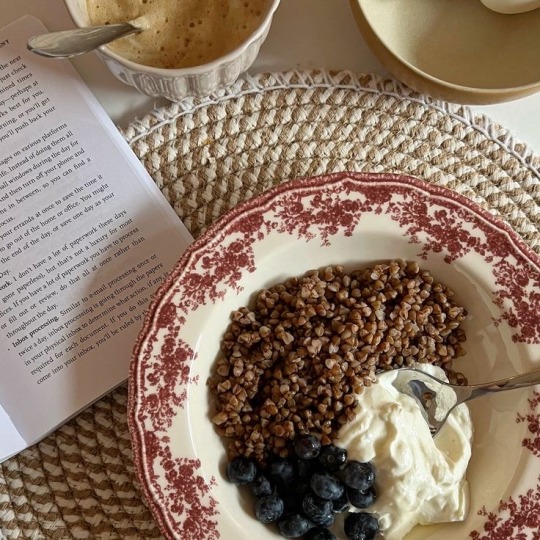

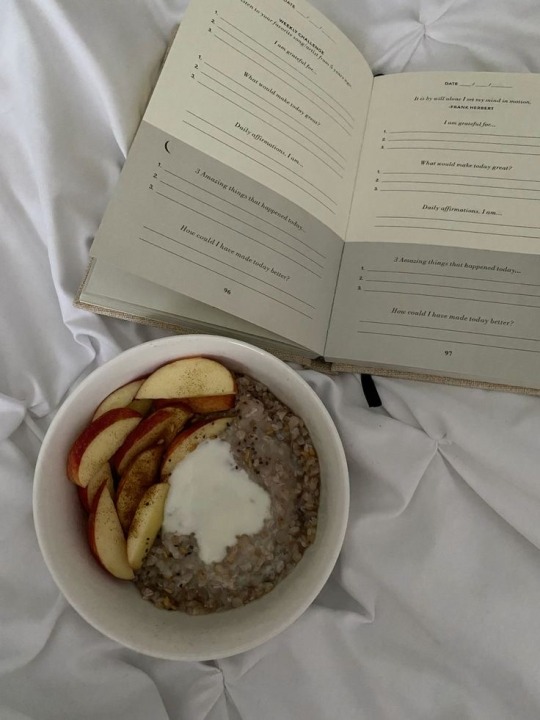
3. The Extras
I don’t add sugar at all and replace it as best as I can.
~honey
~agave syrup
~date syrup
Also, when I want to stop eating sweets, I eat healthier options such as:
~dried fruits (dates, raisins, apricots, plums)
~rice cakes
~regular fruits (blueberries, strawberries, you name them)
!This all takes time. Especially, when you’re freshly starting or trying to break out of unhealthy habits such as being lazy, starving yourself, restricting yourself or binging.
It takes time but you WILL see changes and become a better version of yourself than you have been yesterday.
Sometimes it takes months but just doing something to improve your overall health is a big step already.
Don’t quit and know you can reach your goals💗
#im a star#wonyoungism#clean girl#healthy habits#self love#positive mindset#it girl#becoming that girl#that girl#pilates princess#pink pilates princess#pilates aesthetic#aesthetic#matcha girl#green tea#diet#weight loss diet#weight goals#weight management#weight loss#how to be that girl#girlblog#girls girls girls#healthcare#fitness#girlhood#wonyoung#healthy diet#improving#best version of yourself
42 notes
·
View notes
Text
Since I'm vegan, incorporating elements of a canine ancestral diet into my lifestyle will be more about emulating the nutritional balance rather than the exact foods wolves consume. Wolves eat a mix of proteins, fats, and plant matter, with an emphasis on whole, nutrient-dense sources. Their diet is built for survival, strength, and endurance—qualities I can mirror through plant-based foods while maintaining my values.
### **Key Elements of a Wolf's Diet & Vegan Alternatives**
#### **1. High-Protein Intake**
Wolves thrive on a protein-rich diet, which fuels their muscles and sustains their energy for long periods. You can incorporate:
- **Legumes & Pulses** – Lentils, chickpeas, black beans, and split peas
- **Soy-based Proteins** – Tofu, tempeh, and edamame
- **Seitan (Vital Wheat Gluten)** – A high-protein, meat-like option
- **Hemp & Chia Seeds** – Packed with complete proteins
- **Nutritional Yeast** – Adds protein and a cheesy flavor to dishes
#### **2. Balanced Fats for Energy & Brain Function**
Wolves get essential fatty acids from prey, but you can substitute with plant-based sources:
- **Omega-3s** – Flaxseeds, walnuts, algae-based supplements, hemp seeds
- **Healthy Fats** – Avocados, olives, coconut, and nuts
- **Medium-Chain Triglycerides (MCTs)** – Found in coconut oil, which can boost energy like animal fats do for wolves
#### **3. Micronutrients & Minerals from Wild Plants**
Wolves eat berries, grasses, and herbs instinctively to maintain their health. You can add these:
- **Berries** – Blueberries, blackberries, and raspberries for antioxidants
- **Leafy Greens** – Kale, spinach, dandelion greens (high in calcium and iron)
- **Herbs & Wild Edibles** – Nettles, burdock root, and spirulina for detoxifying and nutrient density
#### **4. Gut Health & Digestion**
Wolves consume organ meats and bones for vitamins and minerals. A vegan version includes:
- **Fermented Foods** – Sauerkraut, kimchi, miso, and kombucha for gut health
- **Seaweed** – Rich in iodine and minerals, similar to nutrients found in animal organs
- **Mushrooms** – Reishi, lion’s mane, and chaga mimic the adaptogenic benefits of organ meats
#### **5. Cyclical Eating & Fasting**
Wolves don’t eat constantly; they gorge, fast, and graze on small plant foods. You might try:
- **Intermittent Fasting** – Eating within a set window (e.g., 8-hour feeding period)
- **Feast & Fast Cycle** – Some days with high intake, some days lighter with just fruits and greens
- **Instinctual Eating** – Listening to your body’s needs rather than forcing strict meal times
#### **6. Hydration & Natural Electrolytes**
Wolves get hydration from prey and fresh water sources. For you:
- **Coconut Water** – A natural electrolyte boost
- **Herbal Teas** – Dandelion, mint, and chamomile for hydration and benefits
- **Infused Waters** – Lemon, cucumber, or berries to mimic mineral-rich natural waters
### **Meal Ideas Inspired by a Canine Ancestral Diet**
- **"Hunt & Gather" Bowl** – Lentils, roasted mushrooms, wild rice, dandelion greens, and tahini
- **High-Protein Wild Plate** – Grilled tempeh, hemp seed pesto, roasted root veggies
- **Feral Smoothie** – Blueberries, coconut milk, hemp protein, chia, and spirulina
- **Forager’s Broth** – Miso soup with seaweed, tofu, and mushrooms
- **Raw Energy Bites** – Dates, walnuts, cacao, flax, and a touch of sea salt
I'm a nerd and a vegan wolf so have my collected information and brainstorming
#therian#therianthropy#therian things#wolf therian#wolfkin#canine therian#caninekin#canine theriotype#dogkin#alaskan black wolf#diet#canine eats
41 notes
·
View notes
Text
🔥Ignite the power of your second brain – your gut!
💎A healthy gut is NOT a luxury, it's a necessity for vibrant living!
👉 Here's why you should pay attention to your gut health...
🌟Your gut is your second brain:
– This isn't a metaphor! Your gut communicates directly with your brain, affecting mood, immunity, and overall wellness.
💡Unleash the benefits :
– A balanced gut microbiome can improve digestion, boost immunity, enhance mood, and even aid weight management.
🧪The science?
– It's all about diversity! A diverse gut microbiome, rich in different bacterial species, is a healthy one.
Now, let's get practical. Here's your gut health game plan...
🍽️Top 4 fermented foods :
• Sauerkraut 🥬
• Kimchi 🌶️
• Kefir 🥛
• Kombucha 🍵
🌱Top 4 prebiotic foods :
• Asparagus 🌱
• Bananas 🍌
• Oats 🥣
• Apples 🍎
(These can be consumes both toghether)
🚫Things to avoid :
• Overuse of antibiotics 💊
• Chronic stress 😖
• Processed foods 🍔
Remember, every bite you take is a chance to feed your gut the right way.
Natural Remedies 🤔
#pay attention#educate yourselves#educate yourself#knowledge is power#reeducate yourself#reeducate yourselves#think about it#think for yourselves#think for yourself#do your homework#do some research#do your own research#ask yourself questions#question everything#natural remedies#for your health#health tips#healthy food#healthy living
385 notes
·
View notes
Text
The Origins, Nutritional Content, and Health Benefits of Probiotic Tea
Origin and Nutritional Content of Probiotic tea Probiotic tea is a fermented, slightly alcoholic and effervescent sweetened black or green tea drink prepared using Probiotic tea culture, bacteria and yeast. Probiotic tea is said to have originated in Northeast China or Russia around 220 BC. The Probiotic tea culture is made up of a symbiotic colony of bacteria and yeast (SCOBY) that feeds on sugar and antioxidants in the tea to carry out fermentation. This process yields a range of nutrients as well as beneficial acids, enzymes and probiotics. Some key nutrients provided by Probiotic tea include B vitamins, amino acids, polyphenols, organic acids and glucose. The fermentation also produces small amounts of alcohol and carbonation. Potential Health Benefits of Probiotics in Kombucha During fermentation, the culture produces a range of probiotic bacteria and yeast associated with numerous health benefits. Chief among these are Lactobacillus and Acetobacter which have been shown to support digestive health, boost immunity and promote natural detoxification in the liver. Research links the probiotics in Probiotic tea to improved gut motility, reduced symptoms of irritable bowel syndrome and protection against harmful microbes overgrowth. They may also help those on antibiotic treatments by replenishing depleted gut bacteria post-antibiotic use. Including Probiotic tea as part of a daily diet could help ensure adequate probiotic intake for optimum digestive and immune health. Detoxification and Liver Support Properties The organic acids produced during Kombucha fermentation include acetic acid, lactic acid and glucuronic acid which is a major component of phase II liver detoxification. Glucuronic acid plays a key role in conjugating and eliminating both endogenous and exogenous toxins from the body. This makes Probiotic tea a useful support for natural detox due to its glucuronic acid content. Along with glucuronic acid, antioxidants like polyphenols also assist the liver in combating free radical damage caused by toxins. Some research indicates Probiotic tea may aid in removing heavy metals from the body through chelation, benefit liver function and prevent toxin accumulation. May Help Manage Blood Sugar Levels The acetic acid found in Probiotic tea is a main component of apple cider vinegar which has traditionally been used to help manage blood sugar levels. Probiotic tea contains glutamic acid which may help regulate insulin sensitivity. Preliminary studies on animals suggest Probiotic tea possesses anti-hyperglycemic effects and could assist in maintaining healthy blood sugar control, making it a suitable option for diabetic individuals. However, human trials are still needed to confirm Probiotic tea's anti-diabetic properties. Drinking Probiotic tea in moderation as part of an overall healthy diet is recommended for possible blood sugar support. Antioxidant Content and Anti-aging Effects Kombucha boasts a profile of antioxidant compounds that protect cells from free radical damage. This includes antioxidants like polyphenols, flavonoids and other phytonutrients carried over from green or black tea into the Probiotic tea. Antioxidants combat oxidative stress implicated in accelerated aging and disease. Research has found Probiotic tea effective at scavenging reactive oxygen species and may reduce toxicity associated with diabetes, heavy metals and pesticides due to its antioxidant activity. Drinking Probiotic tea regularly could help delay signs of aging by supporting optimal cellular health through its antioxidant nutrients.
Get more insights on Kombucha
Alice Mutum is a seasoned senior content editor at Coherent Market Insights, leveraging extensive expertise gained from her previous role as a content writer. With seven years in content development, Alice masterfully employs SEO best practices and cutting-edge digital marketing strategies to craft high-ranking, impactful content. As an editor, she meticulously ensures flawless grammar and punctuation, precise data accuracy, and perfect alignment with audience needs in every research report. Alice's dedication to excellence and her strategic approach to content make her an invaluable asset in the world of market insights.
(LinkedIn: www.linkedin.com/in/alice-mutum-3b247b137 )
#Kombucha#Fermented Tea#Probiotics#Gut Health#Fermentation#Healthy Drink#Wellness#Natural Beverage#Antioxidants#Immune Support#SCOBY
0 notes
Text
embodying the wellness girlie aesthetic⋆.ೃ࿔*:・🎀

i rly love the pink pilates princess aesthetic so i thought i'd make a post on some habits that i've incorporated that rly fit this aesthetic. and improve my wellness in general.

THE PLAYLIST : for the pink pilates princess aesthetic i rly love to listen to music that makes me feel like a doll~ so the playlist aspect of this post is totally customizable and just suited to however u wanna feel. i listen to a lot of twice and sabrina carpenter when i work out. but listening to music just elevates the experience
THE NUTRITION : u dont have to do a complete 180 in the things that u consume, instead start implementing little by little, foods and drinks that'll improve ur health. bcuz u glow differently when ur glowing not only from the outside but the inside as well
kombucha - i totally recommend trying it if u haven't before. its kind of carbonated and u can get it in any flavors. kombucha in a nutshell is tea thats been fermented. it heals ur gut and contains lots of probiotics which are good for ur body in general
drink tea - drinking tea daily is so so so good for you. if ur a bit intimidated by tea start off with a tea 99% of people enjoy, spearmint/peppermint tea. idk many people who DONT like spearmint tea. its just an easy tea to enjoy and its RLY good for ur skin and ur body.
smoothies - look up smoothie recipes online! smoothies are so yummy and customizable so if u dont wanna directly consume ur veggies, you can get them in through a drink! its revolutionary. my go-to is strawberry and banana, bcuz its not only delicious and good for me, but its also pink which is the main reason
eat more salads, açai bowls, eat ur oats, drink ur smoothies and of course dont forget ur matcha
supplements - u can find wellness vitamins or supplements virtually anywhere. a brand that i rly recommend is ollie. im taking their hair skin and nails vitamins and they're lovely.

THE EXERCISE : if u go to youtube and look up follow along pilates workouts u can find SO many. use ur resources guys! if u try pilates and it isnt rly ur thing, try dance workouts or workouts for songs. try a workout challenge. working out doesn't have to be dull. the key is to find something that u enjoy doing and doing it consistently
SELF CARE : ofc the pink pilates princess prioritizes her self care time~ self care is just a good habit to incorporate period bcuz of the massive benefits on ur mental + physical + emotional state
do a face mask - hydrate ur skin guys
get ur nails done - the classic pink pilates princess nails are pale pinks and french tips
take a bubble bath - invest in a high quality bath bomb or bubble mixture that smells nice
invest in a gua sha
start oiling ur hair and putting in hair masks to keep ur hair healthy
write out what ur grateful for (self care isnt only physical)
GOING FOR WALKS : going for walks is amazing. walking improves cardiovascular health and reduces the chances of heart disease and strokes. i love to go for walks and listen to music or a podcast. just make sure that your walking in a safe space or with someone that u trust, especially if ur alone (stay safe <3) going for walks also helps clear ur thoughts!!

ATTIRE : buy clothes that make u feel cute and that make u feel good whilst working out! i like to wear a lot of pink when working out~ when i type pink pilates princess inspired outfits into pinterest i see a lot with leg warmers too! i think that having a cute outfit to workout in motivates u a lot to actually perform the actions and embody the wellness girlie aesthetic. cuz when u look the part -> u feel the part
and last but not least ENJOY urself and romanticize it, have fun <3
#advice#self concept#it girl#becoming that girl#self care#self love#that girl#it girl energy#honeytonedhottie#dream girl tips#dream girl#dream life#pink pilates princess#girly#girl blogger#girl blog#dolly#wellness girlie#green juice girl#green juice aesthetic#self improvement#self development#self healing#nutrition
210 notes
·
View notes
Text
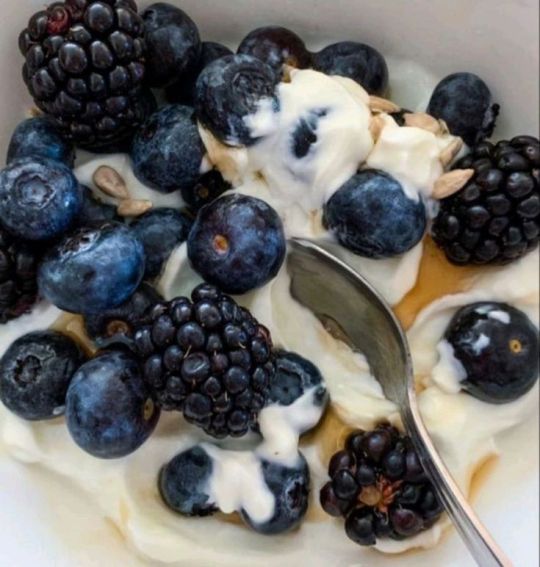
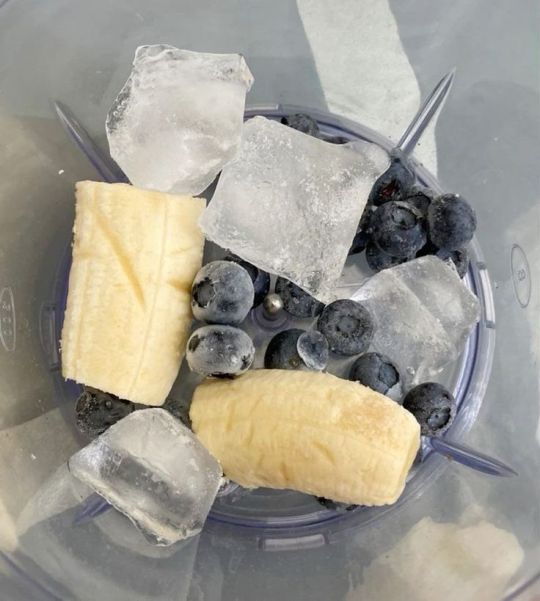
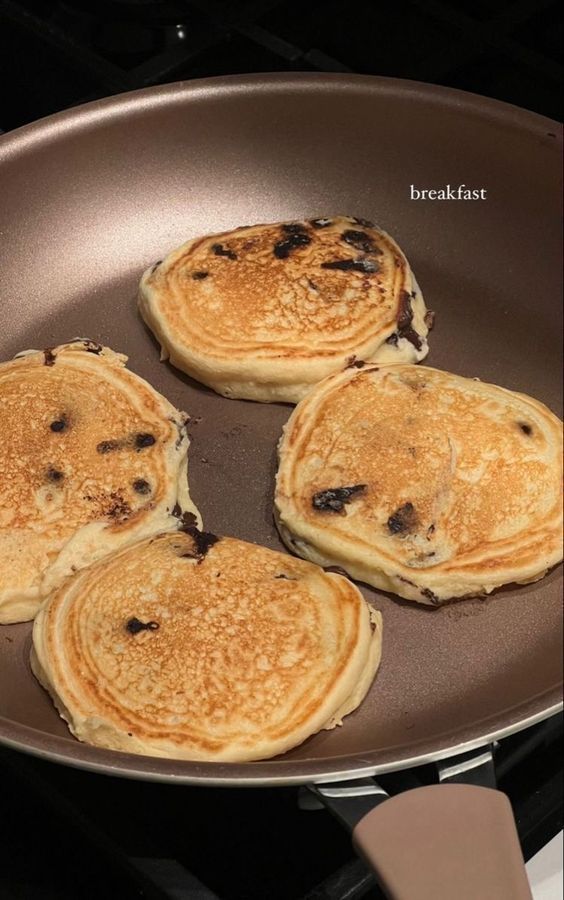
the effect of what (and how) you eat
okay, this is a big topic. and so this is a long post. i'm going to be going over the effect of what you eat and why it's important to think about what foods you are consuming. don't worry! i do my research-- at the end of the post will be a few resources, and i'll show where i've gotten my information.
lots of dietary advice is available over the internet, but often the people absorbing the information do not understand the why. knowing where your information is coming from,, and not believing everything you read online is key to actually maintaining a good, healthy diet.
before you read: TRIGGER WARNING THERE IS MENTION OF EATING DISORDERS,,
let's start with this: like everything in this age, food is a double-edged sword. overconsumption and underconsumption can both kill you. what you eat; how you eat--it can help or hinder whatever your goals may be.
here's the effect/s: the connection between diet and mental health is profound. while we’ve long understood that diet plays a crucial role in overall health, emerging research in the field of nutritional psychiatry sheds light on how what we eat directly impacts our emotional well-being and mental state.
the brain-gut connection: the gut is closely linked to the brain. trillions of living microbes in our gut have essential functions, including synthesizing neurotransmitters. these neurotransmitters send chemical messages to the brain, regulating sleep, pain, appetite, mood, and emotions.
to improve your gut health, here's what you can do:
by eating a varied diet that includes fruits, vegetables, whole grains, nuts and seeds, essential nutrients are provided which feeds the beneficial bacteria in the gut. high fibre foods promote gut health by supporting good bacteria.
fermented foods, such as yogurt, kefir, sauerkraut, kimchi, and miso are rich in probiotics—live beneficial bacteria that boost gut health. kombucha (a fermented tea) is another option.
avoiding reducing processed foods can reduce the diversity of good bacteria in your gut. when i say processed foods, i'm referring to ultra-processed foods, for example, fried foods and frozen meals. they may be easy and cheap, but they include preservatives, artificial colouring, chemical flavouring and texturing agents. all of which our bodies are not made to consume. it's ignorant to tell you to avoid processed foods at all costs. that's not realistic, and a horrible mindset. instead, you should manage your intake. enjoy treats every now and then and don't punish yourself for it.
hydration is key to a healthy gut. water supports digestion and nutrient absorption.
stress management, eating well and exercise can also help your gut microbiome's health.
by having a healthy gut microbiome, you are helping your body to have lower chronic inflammation, have regular bowel movements and more effectively absorb nutrients. therefore, you will have a stronger immune system, have clearer skin and support your digestion and metabolism.
why eating protein matters: proteins are made of amino acids, which serve as the fundamental building blocks for various structures in our bodies. these amino acids are essential for forming enzymes, hormones, tissues, and DNA. protein is vital in maintaining and building muscle mass. when activities like strength training and physical exercise are engaged in, protein helps build and repair the muscles.
hemoglobin, a protein in our red blood cells, transports oxygen from our lungs to other tissues. without adequate protein, oxygen delivery would be compromised. antibodies, which defend against infections, are made of proteins. a well-functioning immune system relies on sufficient protein intake. collagen, a protein, maintains the integrity of our skin, hair, and nails. adequate protein supports healthy skin elasticity and wound healing.
the recommended dietary intake for protein relies on factors such as age, weight, height, gender, activity and overall health. remember that individual needs can vary, so consulting with a healthcare provider or registered dietitian is advisable to determine your specific protein requirements.
many diets exist that cut out entire macronutrients (keto for example) but that is not the way. each macronutrient has great importance in helping the body function.
carbohydrates are the body's (including the brain) preferred energy source. they enable muscle contraction during exercise and even at rest. carbs maintain body temperature, support heart function, and aid digestion.
the keto diet comes from the belief that when carbohydrates are not providing energy (are not being consumed), the body will use reserved energy stored in lipids (fat). while this is true, this diet is not maintainable-- it throws the body out of whack, storing more energy to maintain homeostasis.
fats provide energy and are essential for hormone production. they contribute to cell growth, brain health and vitamin absorption.
our brain is composed of ~60% fat. fats are essential for neurotransmitter production, affecting mood, cognition, and hormonal signalling. cholesterol, often associated with heart health, is a precursor for steroid hormones (testosterone, estrogen, progesterone). without adequate cholesterol, our body cannot produce these essential hormones.
effects of diet on mood: firstly, going long periods without eating can cause a drop in blood sugar levels, leading to tiredness and irritability. secondly, consuming excessive amounts of food can make you feel tired and lethargic.
choosing the right carbohydrates can help maintain blood sugar levels. our brain primarily runs on glucose (obtained from carbohydrate-rich foods). you can opt for slow-release carbohydrates to maintain steady energy levels. slow-release carbohydrates (a.k.a low GI food) provide a more sustained and gradual release of energy compared to other carbohydrates. examples include fruits, vegetables, whole grains (grainy bread, brown rice, oats) and sweet potatoes. high GI foods rapidly spike blood sugar levels due to their quick digestion and absorption.
going too long without eating can lead to low blood sugar levels, resulting in irritability and fatigue. overeating to discomfort can also leave you feeling tired and lethargic. consistent, moderate-sized meals help maintain stable blood sugar levels and promote an even mood.
i know, overeating is an issue that one cannot simply 'turn off'. it's important to know the psychology, and if you struggle with it--please talk to a health professional.
here is what i can tell you about overeating:
overeating is typically a learned behaviour and habit. certain foods are associated with pleasure and reward. when enticing food is encountered, we engage in eating behaviour and immediately experience pleasure. this reinforces the habit, making it challenging to change.
overeating may be serving as a coping mechanism for emotions. when feelings of sadness, disappointment, frustration, or even joy arise, someone may turn to food. emotional eating provides temporary relief, reinforcing the behaviour.
the first delicious bite triggers pleasure, satiates our appetite, and improves our emotional state. our memory associates this reward process with eating, leading us to continually seek that pleasure. this is due to immediate reward.
people with eating disorders may disregard their health, body, body image and lifestyle goals. they use food as a way to punish themselves and gain control over their life. restrictive eating disorders can lead to 'binging behaviour'. bingeing serves as a way to numb emotions. anxiety, stress, and depression can trigger binge behaviours. consuming certain foods or substances (like junk food or alcohol) releases dopamine, the “feel-good” neurotransmitter. this chemical rush can lead to physical addiction, reinforcing bingeing. a culture (unfortunately which is abundant in the world today) that emphasizes consumption as a measure of worth can contribute to bingeing. messages about thinness, drinking, and material possessions can drive these behaviours.
i hate that i am having to say this but alcoholism is bad. and caffeine addiction is bad. in no way is harming your health aesthetic or 'a vibe'.
limiting caffeine and alcohol can also improve mood. again, i'd like to stress that there is never going to be one perfect diet, and allowing yourself to enjoy whatever food you like is perfectly fine- as long as you are doing so in moderation.
everything is a balance.
resources/further reading, to end: Fat Requirements For Optimal Hormonal Health - Clean HealthHow Dietary Fat Benefits Hormones - Women's International Pharmacy (womensinternational.com) The truth about fats: the good, the bad, and the in-between - Harvard HealthDietary fats | healthdirectMacronutrients: Definition, importance, and food sources (medicalnewstoday.com)Know Your Macros-Why Macronutrients Are Key to Healthy Eating | Cedars-SinaiWhy the Proper Balance of Macronutrients is Vital for Good Health - Functional Diagnostic Nutrition What Is Protein & Why Do You Need It? (eatingwell.com)Protein: Why Your Body Needs It (webmd.com)Protein | The Nutrition Source | Harvard T.H. Chan School of Public HealthBinge-Eating Disorder (Compulsive Overeating) | Psychology Today AustraliaThe Psychology Behind Binge-Watching | PsychregBingeing: Why It Happens and What You Can Do About It (greatist.com) Understanding Overeating: The Psychology Behind It - Listen-HardWhy stress causes people to overeat - Harvard HealthThe Truth About Overeating | Psychology TodaySlow-release carbs list (medicalnewstoday.com)Why understanding carbs (and how to count them) matters | Diabetes UK Food and your mood - Better Health ChannelHow food can affect your mood | Nutrition AustraliaStress-related stomach pain: When to see a doctor - UChicago MedicineWhat Is Gut Health? A Comprehensive Guide to Digestive Wellness | U.S. News (usnews.com)Why Gut Health Matters More Than You Think | Well.Org Probiotics: What They Are, Benefits & Side Effects (clevelandclinic.org)Probiotics: What You Need To Know | NCCIH (nih.gov)What should I eat for a healthy gut? - BBC FoodLet’s Eat: How Diet Influences the Brain (brainfacts.org)
i know the fact that the resources are one big block may be annoying, but i don't have the commitment to in text reference lmao. hours of research and writing for a blog post, yes, but in text referencing is just too far.
i hope you learnt something
❤️joanne
#elonomh#elonomhblog#student#student life#academia#chaotic academia#productivity#study blog#that girl#becoming that girl#sports science#anatomy#health science#health and wellness#healthy life#healthy lifestyle#wellness and health#mental health#health & fitness#healthylifestyle#health tips#wellness aesthetic#wellness girl#wellness moodboard#wellness#wellbeing#healthy living#vitamins
123 notes
·
View notes
Text
planning to ferment my mental illness into a delicious and gut healthy beverage like kombucha by allowing it to break down the sugars in my batshit awful posts
20 notes
·
View notes